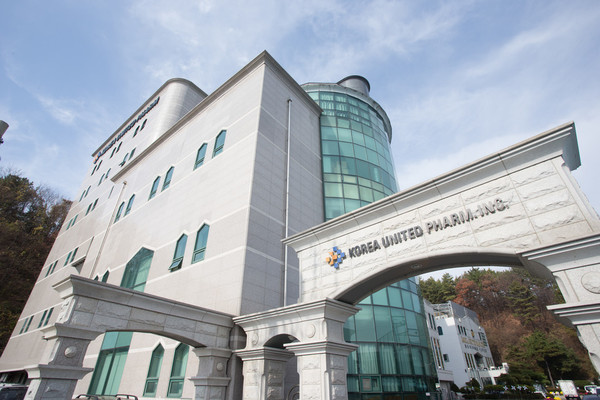United Pharm is about to apply for the regulatory approval of a combo therapy, which combines the antithrombotic ingredient of cilostazol with the dyslipidemia component of rosuvastatin.
Industry insiders pay attention to whether Korea United Pharm, which emerged as a significant player in the antithrombotic market with its incrementally modified drug (IMD) Cilostan CR Tab. (cilostazol), will attain back-to-back success with the combination therapy.

In a public notice last Friday, Korea United Pharm unveiled the domestic phase 3 clinical trial results of “U1022/U1023,” saying the company has verified its safety and efficacy. U1022/U1023 is a complex of cilostazol and rosuvastatin that Korea United Pharma is developing as a treatment for chronic arterial obstruction.
In November 2018, the company won approval for a clinical trial. It administered U1022/U1023 in 260 patients with chronic arterial obstruction in 39 medical institutions, including Seoul National University Bundang Hospital, Korea University Guro Hospital, Severance Hospital, and Catholic University of Korea Seoul St. Mary’s Hospital, for 24 weeks.
Korea United Pharm said that as a result of the clinical trial, the test group’s treatment effectiveness in 257 patients in the FAS (full analysis set) group was 15.41 points (±14.18), and the control group’s treatment effectiveness was 10.27 points (±14.70). The gap between the test group and the control group was 5.14 points (p<0.05, comparison of variation intervals P=0.004), indicating that the test group showed superior treatment effectiveness.
Also, in the safety set (SS) group of 260 subjects, abnormalities occurred in 62 of 130 subjects in the test group, compared to 48 out of 70 subjects in the control group, showing little statistically significant differences in the occurrence rate of abnormalities between the two groups (P=0.1025).
“In the case of peripheral arterial diseases, atherosclerosis, diabetes, high blood pressure, and dyslipidemia/hypercholesterolemia were reported as their major causes,” the company said in the public notice. “International guidelines on peripheral arterial diseases, including “2016 AHA/ACC Guideline on the management of patients with lower extremity peripheral artery disease,” also recommend dyslipidemia treatments for anti-thrombotic drugs and etiology as a treatment for peripheral arterial disease symptoms.”
Noting that the treatment of dyslipidemia and antithrombotic drugs show a high combined prescription rate in medical fields and dyslipidemia and peripheral arterial disease are associated from the aspect of etiology, the company said it expects treatment effects and demand as a combination of dyslipidemia and anti-thrombotic drugs in patients with peripheral arterial obstruction, now that it has demonstrated safety and effectiveness.
“We will push ahead with applying for an item permit to the Ministry of Food and Drug Safety,” Korea United Pharm said.

